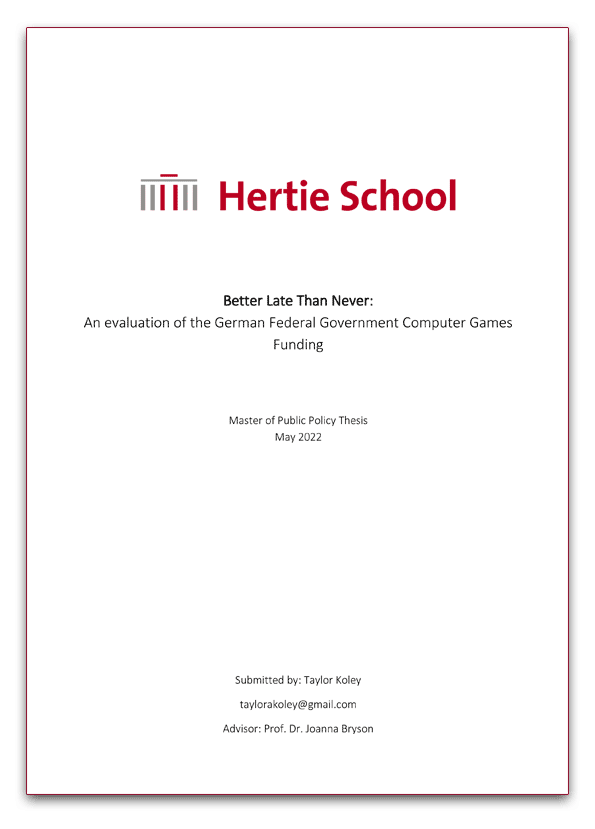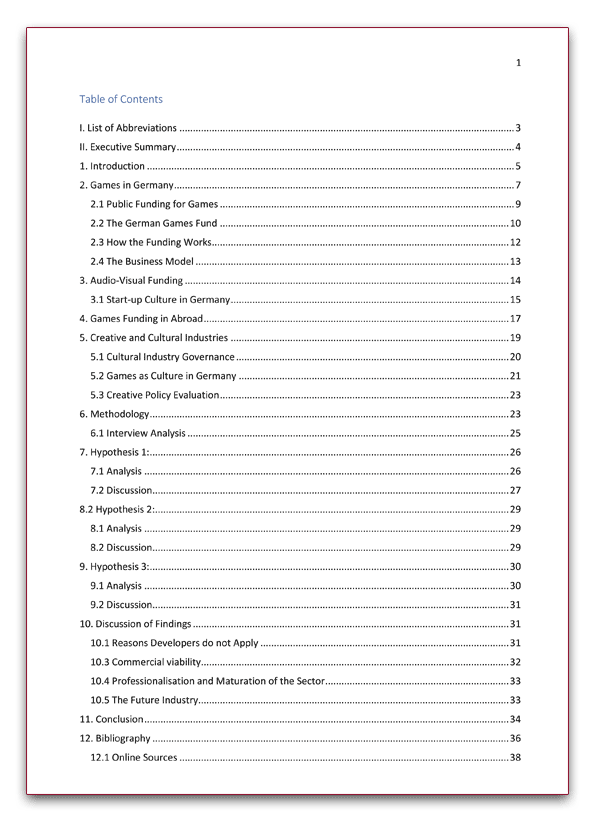
Better Late Than Never: An evaluation of the German Federal Government Computer Games Funding
Globally, Germany is one of the top consumers of video games and yet domestic game developers demand only a 4.2% market share (game e.V., 2021). Recognising this as an issue, the first federal-level funding program for video games in Germany was launched in 2019 with the aim to make the country a more attractive place to develop games and grow the domestic industry in the long run.
This study carried out an on-going evaluation of the fund through interviews with video game developers (n=7), video game academics (n=3), a private sector advocate (n=1) and a public sector employee (n=1) in order to determine how well the programme is reaching the intended targets and what sort of unintended consequences are emerging. The interviews reveal that the funding guidelines have been improved since the initial rollout, better suiting the needs of the sector, and industry specialists have been brought into the public administration. Respondents report that more cultural and artistic games are being produced, and a maturation of the industry is occurring as the generation of people who grew up with digital games specialise in games journalism, academic research, and production. The broader potential impact of the video game sector does not seem to be fully realised at the political level.
EditionNo. 16AuthorTaylor KoleyMAMaster of Public Policy ThesisYear2022Download PDFcreativeindustries.berlin


